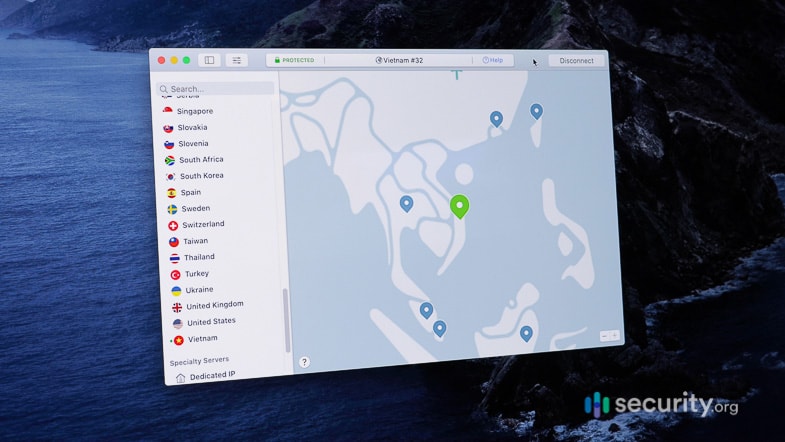How Much Would You Sell Your Social Media Data For?
Created by Security.org
You may not know this, but social media companies like Facebook and Instagram make a significant portion of their revenue by selling users’ data to data collection companies, who then sell it to other third parties for targeted advertisements. That explains why, once you like something on Facebook, you may see ads pop up for it everywhere you go online. But while the social media and data collection companies profit off of user data, the user doesn’t see a penny, which is why we researched how much people would sell their social media data for. After asking 3,000 adults in the U.S, we found that the average citizen would sell their data for just over $2,000. But if you want to see data from your state specifically, simply click on “Select another state” to view the results.
What Data Social Media Companies Collect
Unlike us, you probably haven’t spent hours perusing the privacy policies of all the biggest social media platforms like Facebook and Twitter. But, you might be pretty surprised at what you find out. Most companies collect a lot more data on us than we realize. And we agree to it, too. I mean, what choice do you have? Stop using all social media completely and live a life offline? That doesn’t sound very fun to me. What exactly do these companies collect from users, and what do they do with that information, anyway?
Facebook, the ubiquitous website and app started by then-Harvard student Mark Zuckerburg in 2004,1 collects the following data from their users:
- Name
- Phone number
- Payment information
- Email address
- Stored videos and photos
- Photo and file metadata
- IP address of device
- Networks and connections
- Messages
- Content
- Videos watched
- Views and interactions with content and ads
- Time, frequency and duration of activity
- People you communicate or share content with
- Sensor data from device
As you might remember from the Cambridge-Analytica scandal of 2018,2 Facebook is infamous for selling its users data to third parties. While this data is anonymized, it’s still being used to create targeted advertisements, which some users may not prefer. You also might be surprised to find out what someone can do with your IP address alone.
Twitter, another popular social network, collects a ton of data from their users, including:
- Name
- Username
- Password
- Phone number
- Emails the user writes and receives
- IP address of device
- Browser and device type
- Carrier name
- Operating system
- Messages
- Content
- Videos watched
- Views and interactions with content and ads
- Video and audio information, if audio features are used
- Time, frequency and duration of activity
- People the user communicates and shares content with
- Activity on third-party sites and apps
- Browsing history
- Privacy settings
- Time zone
- GPS location
- Information from third party marketing partners and advertisers
Clearly, Twitter shares user data with advertisers, but one thing you can do is control which of your interests, characteristics and device identifiers the advertisers can see.3 To change these settings, you need to go through a bit of a convoluted process. Press your picture then navigate to the Settings and Support page and then to the Privacy and Safety page. On that page, you can press Ad Preferences to turn off some of the data Twitter collects.
How To Protect Your Personal Data
Now that you know how much data Facebook and Twitter collect, you probably want to start protecting that data. This will help you avoid those annoying personalized ads that cause you to impulse buy. While we can’t make money from our social media data currently, there are a number of tools you can use to prevent it from being used in the first place.

VPNs
A VPN, for example, will hide your web traffic from your Internet Service Provider as well as hide your devices’ IP addresses; learn more in our VPN guide or our best VPN list.
Using a VPN also encrypts all of your data that goes from your device to servers. This prevents social media companies from collecting much data on you to begin with. Be warned though, you do run the risk of getting banned from a platform you login to with a VPN.
>> Related Reading: Best VPNs for TikTok in 2025
Identity Theft Protection
Another way to make sure that your social media data isn’t being used for identity theft is to invest in the best identity theft protection. Learn more in our identity theft buyers guide, or even read about child identity theft specifically.
Sure, we don’t have total control over what data social media companies take from us, but with the best digital security practices, we can make identity theft, phishing, and hackings less likely.
-
History Channel. (2004). Facebook launches.
history.com/this-day-in-history/facebook-launches-mark-zuckerberg -
New York Times. (2018). Cambridge Analytica and Facebook: The Scandal and the Fallout So Far.
nytimes.com/2018/04/04/us/politics/cambridge-analytica-scandal-fallout.html -
Twitter. (2020). Additional information sharing with business partners.
help.twitter.com/en/safety-and-security/data-through-partnerships
